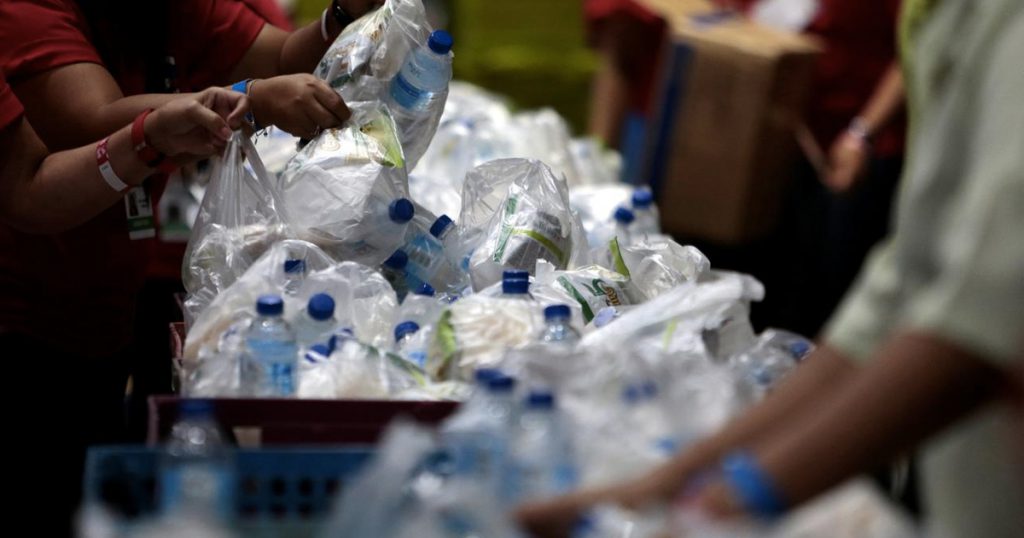The zero waste movement has mostly been pushed by individuals and a handful of green businesses up till now.
So it’s a welcome change that the Government is laying down the law to hold many large companies accountable to improving their waste management.
The Resource Sustainability Bill was passed in Parliament on 4 September 2019, making the “shift from a voluntary to mandatory approach” for businesses to adhere to certain standards.
Three main streams of waste, that are heavily generated but not well recycled, will be targeted: electronic waste (e-waste), food waste and packaging waste.
E-waste
E-waste encompasses a wide range of electrical and electronic products, from small devices like mobile phones to bulky appliances like washing machines that are tricky to dispose of.
It currently makes up 60,000 tonnes of waste yearly. Out of this, 6% is recycled by users, while 24% gets resold or traded in for replacement items, Senior Minister of State for the Environment and Water Resources Dr Amy Khor said.
By 2021, companies that manufacture and import regulated electronics for the Singapore market will be responsible for the collection and proper treatment of their e-waste under the Producer Responsibility Scheme (PRS).
Khor said producers of personal mobility devices will be required to join the PRS too.
Large retailers will also be required to set up collection points in-store to make it easier for consumers to drop off their unwanted items.
Over time, the target will be to reach 65% e-waste collection, said Senior Minister Khor.
Food waste
Singapore produced 760,000 tonnes of food waste in 2018, out of which just 17% was recycled.
New regulations will make it mandatory for establishments that generate large amounts of food waste to segregate and treat it.
This will mostly be imposed on shopping malls, industrial buildings and large hotels.
From 2021 onwards, new establishments setting up their premises must allocate space for on-site food waste treatment.
All establishments of applicable size must have their on-site food waste segregation and treatment implemented by 2024.
Packaging waste
The Act also introduces a mandatory reporting framework for packaging.
Companies like importers and supermarkets will have to submit their packaging data and plans to reduce, reuse, or recycle packaging waste to the National Environment Agency (NEA) annually.
“This covers all packaging introduced along the supply chain, from manufacturing to repackaging, to door-to-door delivery and the point of sale,” said Senior Minister Khor.
She added that the reporting framework will apply to companies “with an annual turnover of more than $10 million” for a start, and will be reviewed again in the future.
In 2018, we produced 530,000 tonnes of packaging waste of which more than half comprised of plastics. Only 4% was recycled.
It’s A Start
There’s evidently a long way to go in the battle against climate change.
New regulations under the Resource Sustainability Act are still just targeting the handling of waste after it’s created, instead of working to reduce its creation from the top of the production line.
Single-use plastics are the hot topic in public discussions, but even with all the attention it’s getting, Singapore still lacks a firm position to impose mandatory charges on disposable items like plastic bags.
At the moment, this leaves it up to the discretion of companies to voluntarily implement plastic bag charges, which FairPrice has started trialling.
But the passing of the Bill is a step in the right direction.
Senior Minister Khor highlighted some large companies that have been leading the charge in Singapore, and most of us probably wouldn’t have been aware of their efforts.
For example she said, Fuji Xerox adopts a closed-loop system where they recover parts and materials to be reused, saving about 30% of materials in manufacturing new products.
By treating its food waste on-site, Grand Hyatt saves around $100,000 a year repurposing it into organic fertiliser for landscaping use.
Khor assured that firms will be given sufficient time and agency support from NEA to meet the new regulatory requirements.
Earlier this year, we gathered some sentiments to find out how willing Singaporeans are to make zero waste efforts.
While people participate in varying degrees of involvement, many of them want to see large corporations being held responsible, since the environmental impact they effect (towards the positive or negative) is of gargantuan scale, even compared to what individuals can collectively achieve by changing their habits.
It’s great to see change being addressed at this level today.
Featured Image Credit: Reuters
